Covid: James Bond film No Time To Die delayed for third time
- Published
- comments
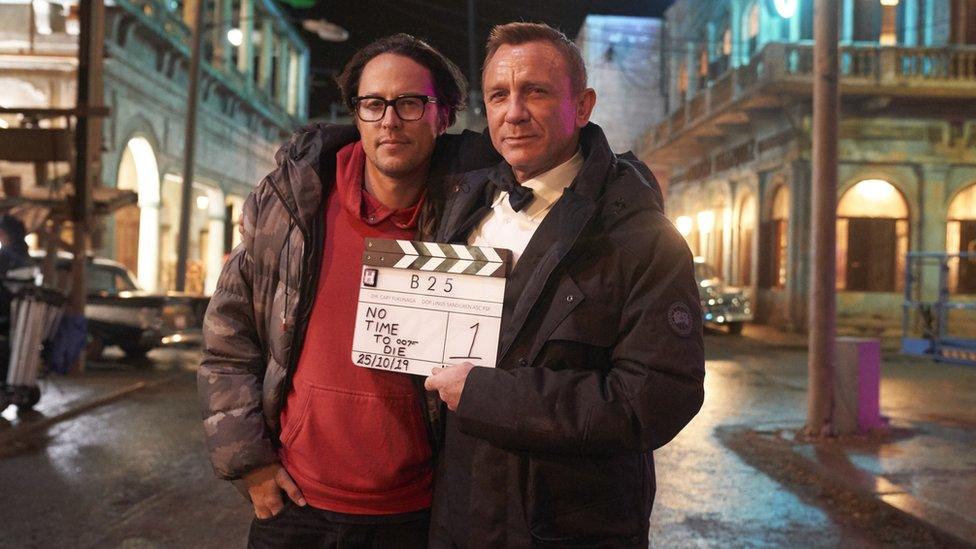
Daniel Craig with director Cary Joji Fukunaga on the No Time To Die set in 2019
The release of the next James Bond film has been delayed for a third time because of the coronavirus pandemic.
No Time To Die had already been pushed back twice, and will now debut globally on 8 October, an announcement on the film's website, external said.
It had originally been due to hit screens in April 2020.
The film is the 25th instalment in the Bond franchise, and marks Daniel Craig's final appearance as British secret service agent 007.
It also features Lea Seydoux and Rami Malek.
The delay will come as a further blow to cinemas that have been forced to shut for months at a time because of lockdowns.
Earlier this week, leading film-makers including Danny Boyle and Sir Steve McQueen wrote to the UK Government, calling for financial support for cinema chains because "UK cinema stands on the edge of an abyss".
Cineworld said in October, when No Time To Die was pushed back for the second time, that delays to big budget releases meant the industry was "unviable".
Bond's latest move sparked a flurry of other delays to major releases. Sony has pushed back Ghostbusters: Afterlife, Peter Rabbit 2, Jared Leto's Morbius, Tom Holland's Uncharted and Cinderella, which will star singer Camila Cabello; while Universal has moved Tom Hanks' Bios from April to November.
Allow YouTube content?
This article contains content provided by Google YouTube. We ask for your permission before anything is loaded, as they may be using cookies and other technologies. You may want to read Google’s cookie policy, external and privacy policy, external before accepting. To view this content choose ‘accept and continue’.
The UK Cinema Association said the decision to postpone No Time To Die again, "while clearly disappointing, is at the same time not surprising given the current situation around Covid-19 in the UK as well as the US and other major film territories".
The postponement of Daniel Craig's swansong and other films "underlines the need for ongoing support for the UK cinema sector", the trade body's chief executive Phil Clapp said.
The association is calling on the government to provide "direct funding" to chains, which represent 80% of ticket sales.
One of the major chains, Vue, said the delay was "understandable", and that the continuing attempts to release the film in cinemas "is further testament to our shared belief in a bright future for the big screen".
Move to streaming?
However, the latest postponement could stoke speculation that the film may ultimately skip cinemas and be released on a streaming platform.
Major Disney titles like Pixar's Soul and its live-action remake of Mulan bypassed cinemas, premiering instead on the Disney+ streaming service.
Wonder Woman 1984, meanwhile, was made available in the US on the HBO Max streaming service on the same day it received a limited cinema release.
Last year, Warner Bros announced its 2021 titles - including sci-fi epic Dune and The Matrix 4 - would all adopt a similar dual release pattern, escalating tensions between Hollywood and US movie theatres.
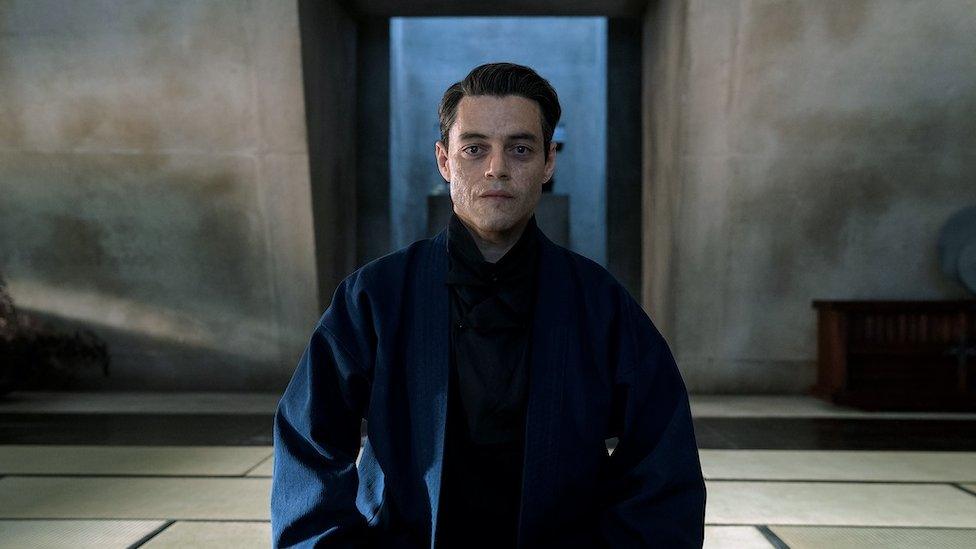
Rami Malek plays the villainous Safin in the thrice-delayed film
The Dig, a new historical drama starring Ralph Fiennes and Carey Mulligan, was due to be released in selected UK cinemas this month. Now, the film will only be available on Netflix from 29 January.
Asked whether No Time To Die might go down the same route, Fiennes - who will reprise his role as M in the film - recently told BBC News: "That's a good question and I'm not really in a position to answer it.
"I would love the idea that people could go to the cinema and have the full effect of the big-screen energy behind the Bond, but I'm sure it's something the people who make these executive decisions are probably considering.
"I really hope we come through this so people can go to the cinema. Maybe they just have to hold their nerve. But of course we don't know, and there may be financial reasons or imperatives that [mean] they have to put it on a streaming system."
If No Time To Die is indeed released in cinemas in October, it will arrive a full six years on from the release of its 2015 predecessor Spectre.
That won't be far behind the six years and four months that separated the release of Licence to Kill in summer 1989 and GoldenEye in late 1995 - the biggest gap between two Bond films.
The last Bond film, 2015's Spectre, took almost $900m (£690m) at worldwide box offices.
Other blockbusters to have been delayed by the pandemic include action sequel Top Gun: Maverick and Marvel's Black Widow.

Follow us on Facebook, external or on Twitter @BBCNewsEnts, external. If you have a story suggestion email entertainment.news@bbc.co.uk, external.
Related topics
- Published18 January 2021
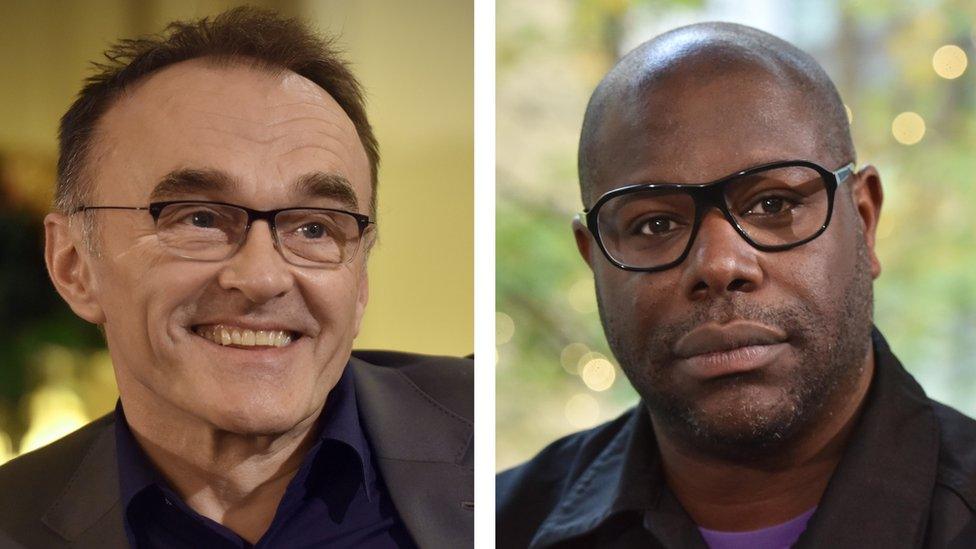
- Published26 November 2020
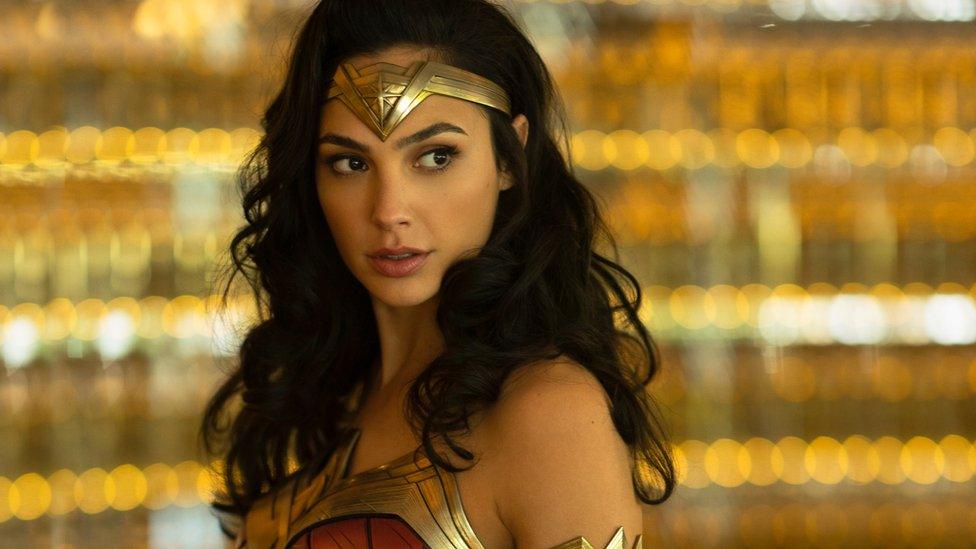
- Published8 October 2020

- Published6 October 2020
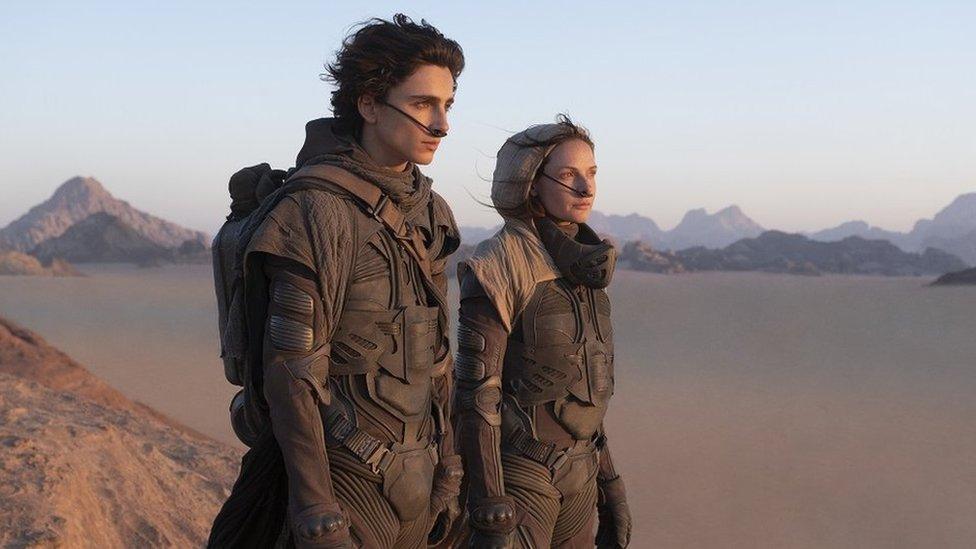
- Published3 October 2020

- Published4 March 2020
